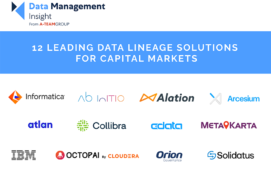By Dennis Slattery, CEO, EDMworks
A lot of effort has recently gone into researching the impact of target setting in the public sector. Does it deliver a benefit or not? The topic is relevant to financial services as many of us are engaged in designing metrics for measuring and improving data quality.
Unsurprisingly, evidence from the public sector is mixed, with advocates claiming huge benefits while others claim costs are soaring and productivity is declining. Through the fog of statistics it becomes pretty clear that if an organisation loses its core focus on giving the customer a better experience, then Target Obsession Disorder (TOD) can set in followed by a downward spiral in performance and an upward spiral in costs.
TOD is the syndrome whereby managers, keen to prove their own value and performance, focus the efforts of their staff exclusively on the attainment of arbitrary targets, regardless of whether this has an adverse impact on the organisation as a whole. Quality metrics, for accuracy, completeness, timeliness, consistency and so on, are in danger of leading us down this path with the creation of arbitrary measures that bear little relationship to the overall performance of the organisation. This is particularly true for service functions buried deep in the organisation and two or three levels removed from a real user.
The key to avoiding TOD is to ensure profiling teams that implement the metrics in data profiling systems collaborate with the departments that use the data so they gain a clear understanding of how they use it and the variations that need to be accommodated. For example, a sudden drop in the completeness metric for email addresses may trigger an investigation into an upstream client onboarding process. In practice, the drop may have been caused by the inclusion of an additional data feed containing customers from an intermediary sales channel that declines to disclose certain customer details such as email addresses.
The metric and its method of measurement need to be sensitive to a range of variations that can occur. Failure to understand this will lead to people wasting time and trying to solve problems that don’t exist. That is what drives up costs and damages performance. When it comes to data, communicate and collaborate, ‘joined up thinking’ is where we need to be.
Subscribe to our newsletter




